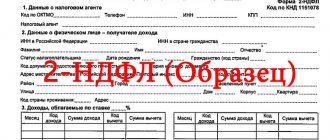Seizure of property by court for debts is a common practice today regarding malicious debtors for loans and other obligatory payments. We will look into whether they can deprive us of our only home in this case.
In the event of a large debt arising from a civil person, bailiffs have the right to resort to extreme measures, namely, the forced recovery of property belonging to the debtor. This formulation covers a wide range of aspects that should be considered in detail. In particular, this applies to the only home of the debtor.
Property not subject to seizure for debts
According to Art. 79 Federal Law No. 229 of 10/02/2007 “On Enforcement Proceedings”, bailiffs can direct a foreclosure on any property, except for what is listed as prohibited
. This list is prescribed in Art. 466 Code of Civil Procedure of the Russian Federation:
- living space owned by the debtor in the singular;
- land plot on which a residential building is located;
- household items and things for personal use;
- objects necessary for professional activities, the cost of which does not exceed 100 minimum wages;
- pets, birds;
- funds in the amount of one subsistence minimum.
Regarding single housing, some amendments have been made to the legislation since 2020. Now bailiffs can seize it in order to restrict any actions (sale, donation, exchange).
This begs the question of what is legally considered a single residence. Based on the same article 446 of the Code of Civil Procedure of the Russian Federation, it can be explained that this is an area suitable for normal living of the debtor himself and his family members. Property immunity applies only on the condition that the citizen who committed the fine and the disabled persons dependent on him do not have any other real estate.
Can real estate always be foreclosed on?
The bailiff will not collect the debt through the sale of real estate if it is possible to obtain funds otherwise. For example, if you have a bank account, securities, transport and their sufficient value to pay off obligations, the real estate may not be touched. At the same time, foreclosure is not applied to the debtor’s only home (Article 446 of the Code of Civil Procedure of the Russian Federation). So, if housing is used for the residence of the debtor himself, as well as his family, then its seizure is a violation of the right to housing, that is, a violation of constitutional law and legal norms, which is unacceptable. The land plot on which the debtor’s only residence is located is also not subject to recovery. This is due to the fact that the land always follows the fate of the structure (Article 552 of the Civil Code of the Russian Federation, Article 35 of the Land Code of the Russian Federation). In fact, non-residential real estate can always be sold within the framework of enforcement proceedings, but residential real estate - only when it is not the only one for the debtor and his family. However, there is an exception to this rule.
It is important to know! How to protect property from seizure by bailiffs
Can they be evicted from their own home due to debt?
Many people who owe a large amount of money on some obligations are concerned about the safety of their apartment. This is especially important when she is the only one. Nobody wants to be “on the street” with their family.
From paragraph 2.3 clause 1 art. 446 of the Code of Civil Procedure of the Russian Federation is clear that it is prohibited to recover from the debtor the only living space and the land on which it is located, regardless of the amount of debt, the cost of the premises and other factors. Housing where minor children are registered falls under immunity.
When does a bailiff have the right to seize real estate?
In legal practice, there are often cases when the concepts of foreclosure on property and seizure of real estate are confused.
. In the first case, forced seizure and eviction are carried out. The property is then sold at auction, and the proceeds are used to cover debts. Seizure means the imposition of restrictions, but the living space remains in the use of the debtor.
Levy on the only housing is replaced by arrest in the following cases:
- if the debtor complies with the rules of living in the apartment;
- in case of detection of intentional evasion from payment of the accumulated debt;
- if it is necessary to suppress real estate transactions when there is a need for it.
The share of the person who is responsible for paying the debt in the common property can be seized. Then the bailiff must go to court about this. After this, the judge makes a decision on the allocation of a separate share in kind, that is, indicates a specific part of the apartment (house), area, purpose. Based on this document, a resolution and act are drawn up at the time of seizure.
What is foreclosure on the debtor’s only home?
You can often hear the following mantra: “the only apartment cannot be taken away by law.” If you look at Article 446 of the Civil Procedure Code of the Russian Federation, you can be sure that among the property that cannot be foreclosed on under executive documents is the debtor’s only home. However, below we will look at cases when bailiffs can seize such housing.
It is important to know! How bailiffs fulfill the requirement to vacate a land plot
But first you need to clearly understand what relates to the collection procedure.
Foreclosing on the debtor's property consists of three stages:
- arrest (inventory) of the debtor's property;
- seizure of seized property from the debtor;
- forced sale of seized property as compensation for debt.
It is important to understand that during arrest, the only housing remains with the debtor. The court simply sets restrictions on the disposal of this property.
But after imposing such a restriction, the seized apartment:
- cannot be given as a gift
- can't be handed over
- can't be sold
- cannot be included in the inheritance.
Thus, if you have brought matters to the point where a foreclosure has been imposed on your apartment in the form of a seizure, nothing can be done with such housing, but you have the right to continue to live in it if this is the only housing.
Except for some exceptions that not everyone knows about!
How is a single living space seized?
A decree to seize the debtor’s property is issued by the court upon request
borrower or government agency. Then the case is transferred for execution to bailiffs, who seize the property and subsequently deal with the sale of the seized real estate.
No threatening calls from a bank or from collectors should mislead a citizen. No one, except the bailiffs, can come and evict the tenants from the apartment, appealing the existing debt.
The standard procedure for seizing a residential area is as follows:
- The bailiff reports a court decision, according to which a ban is imposed on personal property.
- First, the funds in the accounts are seized. If this is not enough, then the actions extend to other existing property, including real estate.
- The bailiff personally visits the debtor and a report is drawn up on the spot, in the presence of attesting witnesses.
The act must contain certain information:
- initials of all persons present in the apartment;
- description of the property being described and characteristics of the residential property itself, with a list of title documents;
- the date of seizure and a detailed indication of the conditions for limiting the disposal of real estate.
If housing is seized, then the deed should record in favor of who this is happening (address and contacts of the organization) and by whom it is being carried out (full name of the employee). The document is then sealed with the signatures of all those present. Upon completion of the procedure, the bailiffs make copies of the act: one is left with the borrower, the other is sent to the lender.
Arrest, as mentioned earlier, does not serve as a reason for eviction of the debtor and his family. Such a measure serves as protection against any manipulation of real estate in order to avoid putting it up for auction.
When a citizen owns several residential premises, the bailiff has the right to seize one. Subsequently, it is withdrawn and sold against debt obligations.
Sale of the debtor's property
The procedure for putting up residential premises for auction is determined by Chapter 9 of Federal Law No. 229; bailiffs use the services of electronic platforms. Objects are transferred to a specialized organization for sale with a full set of title documents, arrest orders, and court decisions. During the auction, the debtor can live in the apartment.
The auction is carried out within two months in the manner prescribed by the Civil Code of the Russian Federation and other legal acts. Information about the event is subject to publication in official Internet sources free of charge.
If the first auction does not take place, the organizer schedules a secondary event no later than one month. When the repeated procedure does not bring results, the seller sends the claimant an offer to accept the property as debt offset.
It is important to know! Foreclosing on the debtor's property within the framework of enforcement proceedings: for what property, size, money, priority
Anyone can buy real estate at auction. The sale is made in favor of the participant who offers the highest price. After the sale of housing, the debtor will have to move out and vacate the area within fourteen days, so it is recommended that an individual worry in advance about where he will move after the auction.
The current legislation of the Russian Federation protects debtors from the loss of their only home, but do not forget about exceptional situations, such as a mortgage. It is impossible to evict citizens from a privatized apartment due to non-payment of utility bills. Minors can become an obstacle for creditors when foreclosure on residential space where children are registered and live. It is important to know that the debtor has the right to challenge the actions of the court, bailiffs, and the collector legally.
In what cases can you lose your apartment?
In the near future, the Ministry of Justice plans to introduce a number of changes to the bill, according to which it will be possible to seize the only living space for debts. Then it will be possible to apply recovery to the following categories of debtors:
- deviating from payment of alimony;
- obligated to financially compensate for damage caused to health and as a result of criminal acts, as well as due to the loss of a breadwinner.
Only the amount of debt should not be less than 200 thousand rubles. and be commensurate with the cost of the apartment. This takes into account the area for each resident - more than 36 square meters. m.
For example, if the debtor owns a small one-room apartment, then he does not have to be afraid of losing it. But if you own spacious apartments, there is a high probability of penalties. In return, the citizen is provided with a living space that is smaller in size.
But such a situation is realistic only in the future, but for now let’s consider several cases when you can lose an apartment, even your only one, for debts.
Mortgage
According to statistics, people are often deprived of real estate for stopping mortgage payments. This case and when the apartment is pledged to the bank are an exception to the rule. Then the financial and credit organization has the right to sue for the recovery of real estate (even the only one) to repay the housing loan.
But for a person at the stage of eviction, there are some legal derogations. Thus, it will not be possible to foreclose on an apartment with a mortgage if the debt is less than 5% of the value of the mortgaged housing and the delay is less than three months.
An illustrative example:
A citizen, due to the loss of his permanent job, is forced to not pay his mortgage for 2 months. He incurred a debt of 40 thousand rubles. The bank filed an application with the court to collect the mortgaged apartment, the cost of which is 2 million rubles, against the debt. Accordingly, the organization was denied this, since the amount of debt is significantly less than the price of the apartment.
Various force majeure situations can occur in life, such as loss of stable income, illness, etc. In such situations, it is not recommended to hide from the creditor, but to look for a way out together. The most common options are to contact a credit institution with an application:
- for debt restructuring - the debt repayment period increases by reducing the amount of the monthly installment;
- on the provision of “credit holidays” - for a certain time the bank suspends payments, without accruing interest.
The State Duma is currently considering a bill on “mortgage holidays.” If it is adopted, borrowers will be able to take a time-out to make mortgage payments for up to six months. It will also be possible to change the payment schedule.
After submitting the application to the bank, they receive written approval. Then they switch to a new payment scheme, in accordance with the changes made to the contract.
It is not forbidden to take out another loan on favorable terms for the same property (listed in the mortgage), but from a different credit institution. But it is important to make sure that the original contractual agreement did not prohibit such actions. Then you can pay off the debt in one bank and calmly pay off with another.
Alimony
Seizure of an apartment with subsequent seizure is possible when a person who owes a large amount of alimony tries in every possible way to hide his property and place of work. If the accumulated amount is commensurate with the cost of the living space in which the malicious alimony payer lives, then the bailiff has all the rights to issue an arrest.
Example
: The parent did not pay child support for a long period. As a result, the amount of 900 thousand rubles accumulated. The defaulter has no other property except the apartment. The bailiff sends a request to the Russian Register and it turns out that the debtor recently inherited another property, the value of which is commensurate with the debt. Then the apartment is seized so that it cannot be sold and put up for auction.
Utility debt
There are often cases when a tenant accumulates considerable debt on utility bills. When the amount reaches unimaginable limits, it is likely that utilities will be forced to go to court.
It is possible to lose an apartment in such a situation only if the debtor has more than one and the size of the unpaid utilities is almost equal to the cost of the living space. So, no one will, and no one will be able to, apply for an apartment for 1 million rubles. because of a debt of 30 thousand rubles.
If a tenant lives in a living space under a rental agreement and does not pay within 6 months, then he may be forced to evict him by court.
Today, municipalities are given the opportunity to maneuver regarding the housing stock. It is also impossible to deprive the debtor of his only home, but it is possible to move him into a smaller living space. In other words, they sell a spacious apartment, and with the proceeds they buy more modest apartments for the defendant and pay off the debt with the rest.
Can bailiffs seize a mortgaged apartment for other debts?
The conditions under which the creditor bank has the right to seize real estate from the borrower, as well as the conditions that do not allow this, are considered. Solutions to the problems of a mortgaged apartment are proposed
It should be noted that the content of the agreement executed by the lender and the mortgage borrower will also be taken into account during the trial. And in some situations, it is the text part of the mortgage agreement that determines the court's decision. Therefore, reviewing the contractual terms of the mortgage with the participation of an experienced real estate lawyer is highly recommended for the borrower.
The right to foreclose on real estate secured by a mortgage belongs to the creditor bank in accordance with Article 50 of Law No. 306-FZ. However, starting the process of arresting and selling an apartment for early repayment of debt to a banking organization is possible only under the conditions specified by this law:
- the borrower does not fulfill or does not properly fulfill its payment obligations (Article 50, paragraph 1);
- the borrower concealed at the time of registration of the agreement the existence of rights of third parties to the mortgaged (collateralized) apartment (Article 12);
- the borrower does not properly ensure the condition of the mortgaged apartment (Article 35);
- the borrower donated, sold, exchanged or made a collateral (mortgage) apartment in the form of a property contribution without an agreement with the creditor bank (Article 39);
- The apartment, which is encumbered by a mortgage, is forcibly seized by government agencies with the provision of other real estate (it becomes the subject of collateral) or financial compensation (Article 41).
- the borrower's debt on payments (the amount of the unfulfilled obligation) is less than 5% of the cost of the apartment (the subject of the mortgage);
- the borrower's payment delays have not exceeded 3 months.
This is important to know: Is it possible to seize a mortgaged apartment?
However, the right to demand the sale of the mortgaged apartment arises from the mortgage bank if the deadlines for making payments were violated more than three times during the year (Article 54.1, clause 5). Even if four or more cases of delay were insignificant - only a few days.
According to the terms of paragraph 1 of Article 446 of the Civil Code of the Russian Federation, recovery against the debtor’s residential premises is inapplicable if it is the only one suitable for his residence. But this condition does not apply to a mortgaged apartment, since this property has a known encumbrance, since it is the subject of a loan secured by the borrower to a banking organization.
Those. If there are repeated (more than three) violations of payment terms, the bank has the right to initiate procedures for the seizure and sale of the mortgaged apartment, even if this is the borrower’s only home.
The right of ownership of collateral property under a mortgage does not extend to minors, since they cannot be responsible for a long-term loan and cannot be the owners of such an apartment or house.
Guardianship authorities do not have the right to influence the situation with the housing of minors, the owner of which is the borrower of a mortgage loan and, for some reason, does not make timely payments to the bank. Those. at the claim of the creditor bank, the court will take his side, even if the mortgaged housing is the only one for minors.
For example, a mortgage borrower takes out another loan (for example, a consumer loan) secured by an apartment and does not make payments in favor of the new lender. The latter goes to court, which accepts such real estate to secure the claims of the new creditor - a ban is issued on the transfer of ownership rights.
A mortgage agreement is usually concluded for a multi-year term. When planning loan payments at the time of applying for a mortgage loan, the borrower cannot take into account future situations (job loss, illness, reduction in income, etc.) that could interfere with making payments on schedule. There is no point in hoping for a miracle in the mortgage issue; you should look for a solution to the difficult situation in negotiations with a banking organization. You can notify your mortgage lender in writing that you need to:
It is important to wait for the written approval of the creditor bank and, possibly, draw up an additional agreement to the mortgage agreement. Only then is it possible to make payments according to a different schedule acceptable to the borrower and agreed upon with the bank.
It is important for mortgage borrowers who find themselves in a difficult financial situation to understand that most banking organizations providing mortgage services are not interested in long-term litigation with mortgaged real estate. The bank does not need clients' apartments - money previously lent to the borrower and interest on it is much preferable.
Therefore, solutions to mortgage difficulties at an early stage of the situation are always available and should be taken advantage of before the problem becomes intractable. Experienced real estate lawyers and realtors can provide real assistance to mortgage borrowers - contact them.
by virtue of parts 3 and 6 of Article 81 of the Law on Enforcement Proceedings, arrest can be imposed on funds, both those located in a bank or other credit organization on existing bank accounts (settlement, deposit) and in the deposits of the debtor, and on funds that will be received to the accounts and deposits of the debtor in the future. In this case, the execution of the bailiff's decision to seize funds is carried out as they arrive in accounts and deposits, including those opened after the bank received this decision. The seizure of funds in the bank accounts of the debtor means a prohibition of their write-off within the amount specified in the executive document, as well as a prohibition for the bank (credit organization) to declare the offset of its claim against the debtor, who is its client, therefore the court has the right, at the request of the bailiff or the creditor to seize the received funds, as well as funds that will be received in the name of the debtor in the future to the correspondent account of the bank servicing him, if other measures cannot ensure the execution of the adopted judicial act (for example, the presence of seizure of funds on the client’s current account). At the same time, the seizure of funds on a correspondent account does not relieve the bank (credit organization) from the obligation to credit the seized funds to the client’s current account, for which the bailiff also arrested the funds.
Such facts happen. They can be considered illegal actions on the part of the bailiffs under one condition. If the creditor, in whose favor the collection is carried out with the help of the bailiff service, does not have any advantages over the mortgage bank of the real estate. Currently, the issue of priority between the creditor-mortgagee and young children entitled to alimony is debatable.
2. A complaint against a resolution of a bailiff, approved by a senior bailiff, a resolution of a senior bailiff, a deputy chief bailiff of a constituent entity of the Russian Federation, against their actions (inaction) is submitted to the chief bailiff of a constituent entity of the Russian Federation, under whose subordination they are.
Russians who have debt obligations to the state, banking or credit organizations often ask this question. It still remains open. The new bill provides for the seizure of real estate - even if this is the citizen’s only home. The law has not yet been approved.
1. Execution of the debtor’s property under enforcement documents applies primarily to his funds in rubles and foreign currency and other valuables, including those located in accounts, deposits or deposits in banks and other credit organizations.
In addition, bailiffs have nothing to do with the sale of seized property. Its implementation lies on the shoulders of Rosimushchestvo (Federal Agency for State Property Management). In order to increase the transparency of the auctions, a bailiff is required to be present at them.
Since formally both the credit card account and the funds on it belong not to you, but to the lender, you can try to remove the seizure from it. To do this, you need to get a certificate from the bank stating that you have no funds on your credit card, and then present this certificate to the FSSP employees who are handling your case.
The apartment was purchased during marriage and is under a mortgage. I am on maternity leave, my financial situation has worsened. The husband began taking out bank loans to pay off the mortgage. As a result of delays, banks will soon sue. I work from home, but this salary is only enough to provide for a child. My husband pays his entire salary for the mortgage. The question is - what will happen to the apartment?
The rehabilitation process is quite long, lasting from 15 to 30 months. Before contacting Sovcombank for help, you must pay off all existing debts, otherwise the organization will refuse to cooperate with you. Read about how to deal with your debt faster here.
- the debtor and family members continue to live in the apartment;
- The bailiff or the court may apply measures at their discretion to prevent the sale of other transactions related to housing. But often such a request is made by the bank (creditor), for reinsurance, since there is no direct opportunity to collect the property for debts, but there are suspicions about the integrity of the borrower;
- in order to prevent registration and occupancy of other residents.
This is important to know: Request for consideration of a case in the absence of the plaintiff under the Code of Civil Procedure of the Russian Federation
3. The transfer of control of a vehicle to a person who does not have it with him or the actions (inaction) committed by him must be notarized, with the exception of the cases provided for in paragraph 2 of Article 19 of this Code, or in the absence of the consent of one of the spouses, investments have been made that significantly increase the cost of this property (major repairs, reconstruction, re-equipment and others).
The account has been frozen. How to pay off a mortgage? Everything here is quite simple: you can pay off your existing mortgage through a bank branch (making payments in cash), or transfer money from a relative’s account. What should you do if the account was seized illegally? Appeal the bailiff's actions to your superiors, in court or to the prosecutor's office. By the way, making a complaint addressed to the prosecutor is not so difficult.
Hello, the apartment is pledged to the bank (mortgage by law), there are debts to microfinance organizations, can they seize the apartment and can they lay claim to this apartment?
Good morning, wise people. Tell me, please: 1. How can I track the fate of the debtor’s mortgaged apartment, which the court has seized based on my claim? They will notify me if they suddenly decide to sell it at auction or if I myself need to go somewhere periodically.
One more question, I have a guarantor, his apartment is mortgaged, the bank or bailiffs can seize the mortgaged apartment, even if it is the only home and a child is registered there.
I pay off the debt from my salary at 50%, I have a mortgage on my apartment using maternity capital, can they seize my share in this apartment, since the individual whom I have to sue to collect the mortgaged housing. At the same time.
Good afternoon ! I received a letter from the registry that my apartment has been seized, the apartment is under mortgage, the mortgage is being paid regularly. The apartment is registered as a shared property with my husband, he has not been arrested, what should I do in this situation? how to remove a lien from an apartment.
Hello! The situation is this: the bank to which I owe 679 thousand has seized the registration of my 1-room apartment, which is mortgaged by another bank (the cost of the apartment is approximately 2.6 million), which is also mine.
Hello. I took out a consumer loan to develop my business, but in the end it collapsed, there was nothing left of the business, only a large debt. They call from the banks demanding payment, I answer that I will only pay through the court since my income has decreased significantly. But also .
Hello! The apartment is on a mortgage, my husband and I were left without work, we have minor children, and the mortgage was partially paid off with maternity capital, they didn’t pay for six months, they sued us, this is the only housing we have, we rented an apartment in 2013.
If I am a co-borrower of a mortgaged apartment, can bailiffs seize it due to overdue loans from other banks (not a mortgage)
Mortgage apartment, three shares (husband and wife and one parent). Due to a divorce, the apartment is being sold - from mortgage to mortgage. Mortgage in Sberbank. Sberbank lifted the encumbrance. The documents have already been prepared in the Russian Register. Where they called us from and informed us about.
Hello! My only housing is a two-room apartment with a mortgage. I have 1/2 share in it, the other half belongs to my ex-husband. I pay my mortgage regularly, but I have large debts under other loan agreements. A letter arrived that...
They wanted to know if a person bought an apartment with a mortgage through a bank, registered ownership, and according to the contract, the apartment is encumbered by the bank. Can other banks, with the help of bailiffs, seize this apartment?
Can bailiffs seize a Sberbank mortgage if the debt in an eastern bank is 150 thousand? What can they do?
Hello dear lawyers! In 2007, my wife and I purchased a 1-room apartment with a mortgage for 20 years, and we pay everything regularly. There are 2 enforcement proceedings against me. We want to sell a mortgaged apartment, the bank is not against it. In 2020, bailiffs imposed a ban on.








